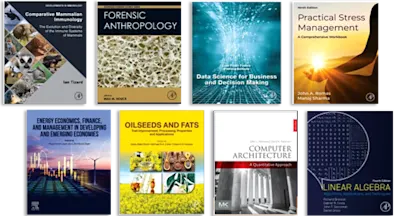
Eco-efficient Repair and Rehabilitation of Concrete Infrastructures
- 1st Edition - November 13, 2017
- Imprint: Woodhead Publishing
- Editors: Fernando Pacheco-Torgal, Robert E. Melchers, Xianming Shi, Nele de Belie, Kim Van Tittelboom, Andres Saez Perez
- Language: English
- Paperback ISBN:9 7 8 - 0 - 0 8 - 1 0 2 1 8 1 - 1
- eBook ISBN:9 7 8 - 0 - 0 8 - 1 0 2 1 8 2 - 8
Eco-efficient Repair and Rehabilitation of Concrete Infrastructures provides an updated state-of-the-art review on eco-efficient repair and rehabilitation of concrete infrastru… Read more
Purchase options

Eco-efficient Repair and Rehabilitation of Concrete Infrastructures provides an updated state-of-the-art review on eco-efficient repair and rehabilitation of concrete infrastructure. The first section focuses on deterioration assessment methods, and includes chapters on stress wave assessment, ground-penetrating radar, monitoring of corrosion, SHM using acoustic emission and optical fiber sensors. Other sections discuss the development and application of several new innovative repair and rehabilitation materials, including geopolymer concrete, sulfoaluminate cement-based concrete, engineered cementitious composites (ECC) based concrete, bacteria-based concrete, concrete with encapsulated polyurethane, and concrete with super absorbent polymer (SAPs), amongst other topics.
Final sections focus on crucial design aspects, such as quality control, including lifecycle and cost analysis with several related case studies on repair and rehabilitation. The book will be an essential reference resource for materials scientists, civil and structural engineers, architects, structural designers and contractors working in the construction industry.
- Delivers the latest research findings with contributions from leading international experts
- Provides fully updated information on the European standard on materials for concrete repair (EN 1504)
- Includes an entire sections on the state-of-the-art in NDT, innovative repair and rehabilitation materials, as well as LCC and LCA information
Materials scientists, civil and structural engineers, architects, structural designers, and contractors working in the construction industry
- Edition: 1
- Published: November 13, 2017
- Imprint: Woodhead Publishing
- Language: English
FP
Fernando Pacheco-Torgal
RM
Robert E. Melchers
XS
Xianming Shi
NB
Nele de Belie
KT
Kim Van Tittelboom
AS